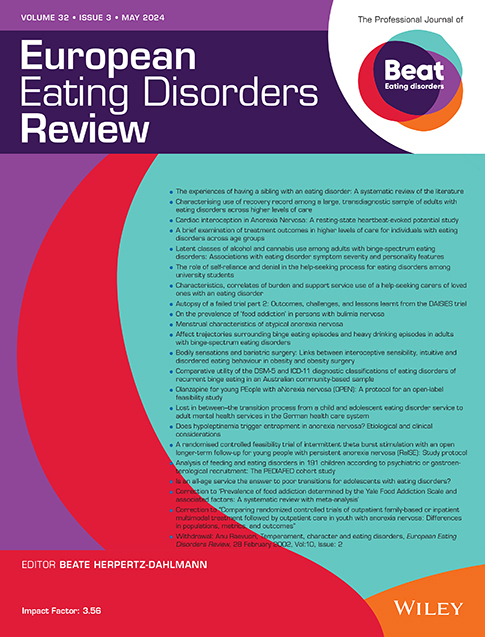Considering a Functional Conceptualisation of Avoidant/Restrictive Food Intake Disorder (ARFID): A Systematic Scoping Review of Emerging Evidence on ARFID
Abstract
Introduction
Avoidant/restrictive food intake disorder (ARFID) only recently emerged in the DSM-5 and ICD-11. Relatedly, emerging conceptualisations of ARFID are equivocal. A functional conceptualisation of ARFID (i.e., cohesive conceptualisation that can guide research and clinical work) is needed. The present systematic scoping review aimed to synthesise ARFID literature to develop a functional conceptualisation model with recommendations for ongoing research and clinical work.
Method
Utilising PRISMA guidelines, 25 references were found eligible for inclusion and categorised using a bottom-up approach into 6 (not mutually exclusive) conceptualisations of ARFID: clinical presentation subtypes (n = 16), symptom presentation (n = 4), biological (n = 3), behavioural (n = 4), learning (n = 3), and biopsychosocial (n = 4) models.
Results
Conceptually, both clinical presentation subtype and biopsychosocial models posed important avenues for further exploration of the aetiology, maintenance, and treatment of ARFID. Clinical presentation subtype models were most common, echoing and extending previous research support for the DSM's subtype categorisation. Biopsychosocial models were agnostic to ARFID subtypes, but encompassed elements of the biological, behavioural, and learning models, and suggested factors related to the aetiology and maintenance of ARFID subtypes.
Discussion
Together, these conceptualisations allow for streamlined, nuanced research and clinical work aimed at understanding and treating ARFID.

 求助内容:
求助内容: 应助结果提醒方式:
应助结果提醒方式:


